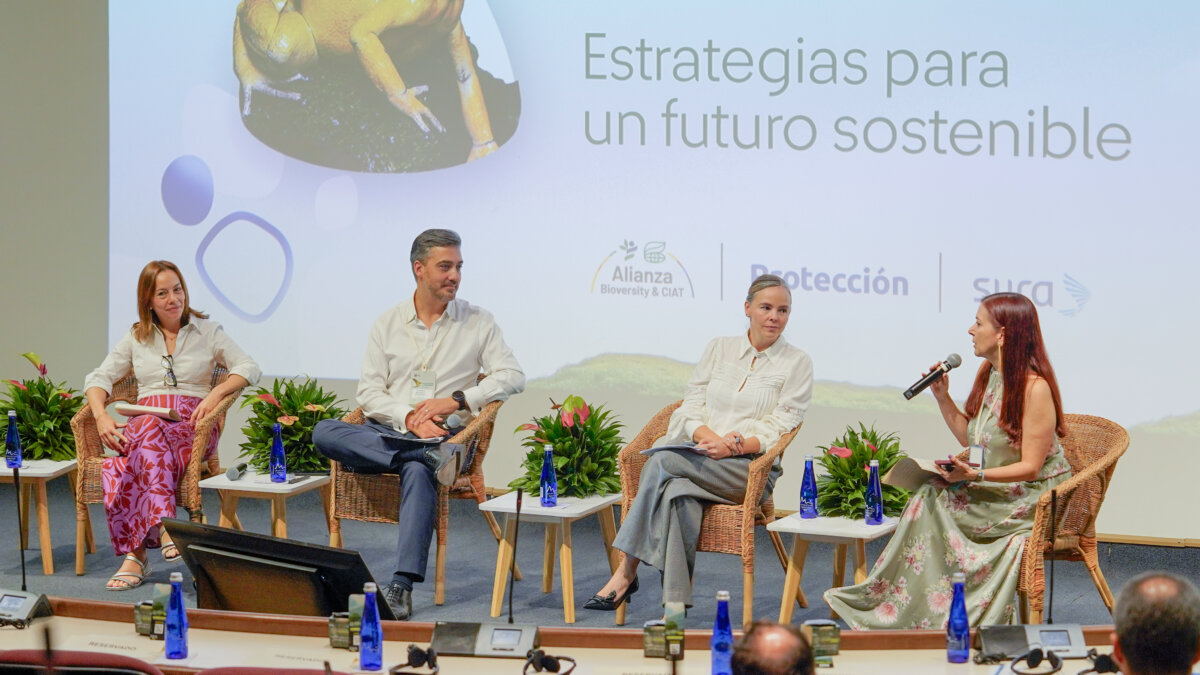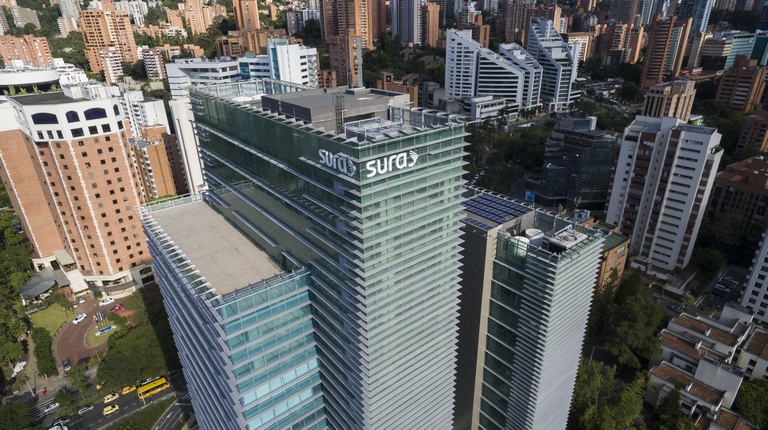- This was one of the conclusions of the seminar “Biodiversity and companies: strategies for a sustainable future”, held this past Thursday as part of the COP 16 summit, which can be viewed here.
- SURA and Protección in partnership with Bioversity & CIAT provided this opportunity showcasing co-responsibilities and the urgent need for more action to be taken and more preservation models to be configured.
- Differentiated risk management in terms of portfolio investment, insurance and financing encourage bio-businesses and productive sectors to be more responsible with nature.
Colombia, November 1, 2024. Although significant efforts have been made in various sectors, there is still an urgent need to increase the measures being taken for preserving and regenerating nature, this in the form of a commitment on the part of everyone. This was one of the main threads of the conversations held this past Thursday during the seminar titled “Biodiversity and companies: strategies for a sustainable future”, organized by SURA and Protección in conjunction with Alianza Bioversity & CIAT.
More than 150 people gathered at the headquarters of the CIAT research center, in Palmira (Valle), including business leaders, sustainability experts, environmental organizations and representatives of the financial services industry, who analyzed the co-responsibility of promoting sustainable strategies that tie in productive and social development with the natural environment, the latter being such a vital asset for human survival.
“This sense of urgency tells us that we have not done enough to move towards more conscientious models that promote social and planetary health. One of the great impacts that the financial services industry has is the ability to extend environmental risk management and an awareness of the impacts we have on nature towards other sectors. We must be clear that nature is the insurance par excellence that we as human beings have, without it we have no possible future,” stated Juana Francisca Llano, Chief Executive Officer of Suramericana.
This event also highlighted that 44 trillion dollars of the world's GDP depend on activities relating to nature, which represents 60% of the global economy's activities. The remaining 40% maintains an average relationship with the environment. Also highlighted were the importance that ecosystems represent for the sustainability of the economy and strengthening responsible approaches in terms of current business models as well as generating regulatory and profitability incentives that facilitate the mobilization of resources this in order to mitigate phenomena such as climate change and the loss of biodiversity loss.
“We, at Protección, as fund managers, have been evolving from integrating environmental, social and governance risks towards a more active management of nature-related risks, this through measures such as decarbonizing our portfolios and bringing our clients into the conversation so that they become more aware of these issues. It is essential that we develop sustainable economic models that encourage a relationship of care and protection towards nature, thereby creating a positive and lasting impact in the future,” stated Mauricio Rodríguez, Chief Investment and Wealth Management Officer at Protección.
Biodiversity and financial services: a future-facing approach
The seminar also addressed the opportunities and challenges for investors interested in biodiversity conservation and explored the importance of integrating sustainable principles into investment decisions. This perspective recognizes the fact that human activity is part of and is dependent on nature and that ecosystem services should not be excluded from the valuations and processes inherent to financial services and markets.
“We, in the financial services industry, need to change our understanding of risk in terms of investing in nature and must think of new ways to adjust the cost of capital, taking into account this criterion in order to create incentives that drive transformations in the real sector through investments, financing and insurance, so that companies or assets that manage their respective impact on our ecosystems are duly acknowledged compared to other companies that fail to adequately do so,” concluded Lina María Uribe, Head of Sustainability at Grupo SURA.
In this regard, different panelists agreed that it is necessary to mobilize greater capital out flows from financial markets to Colombia and Latin America for the purpose of regenerating and preserving biodiversity. It is also necessary to continue strengthening an awareness that capital allocation focusing on nature is to be increasingly integrated into the business models of the financial services industry.
This implies continuing to innovate in instruments, products, solutions based on environmental criteria, as well as recognizing that this approach to capital allocation brings profitable business opportunities and benefits, to the extent that it creates new sources of income, contributes to portfolio diversification, mitigates risk and develops voluntary markets such as those of carbon and biodiversity, among others, that have a positive impact on economies, productive sectors, communities and territories.
About the SURA Business Group:
We are a Colombian Organization founded almost 80 years ago, that is present in 8 countries Latin America where we serve more than 45 million clients with the help of nearly 28 thousand employees. Our holding company is Grupo SURA, which manages a portfolio focusing on financial services that includes its subsidiaries Suramericana, specializing in insurance as well as trends & risk management through its companies Seguros SURA, a leader in its industry in Colombia and present in six other countries throughout the region; SURA Asset Management an expert player in asset management, of which Protección is a subsidiary in Colombia. It also has a direct presence in four other countries through its Savings and Retirement business units (pension fund management) and its regional platform SURA Investments. Likewise, the Organization has its own SURA Foundation, incorporated in Colombia, Mexico and Chile.











